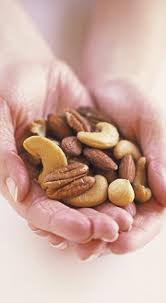A 20-year investigation into the health benefits of nuts has revealed that people who regularly eat them are less likely to die of the diseases of ageing.
The research looked into various levels of snacking on three kinds of nuts – peanuts, brazil and pistachios. And the evidence revealed that all levels of consumption provided acrosss-the-board health benefits. In particular, protection from cardiovascular disease and diabetes.
Nutritionists have long known the benefits of this natural food. They are packed with cancer-fighting antioxidants, which help the body fight disease and protect cells from damage, and contain essential minerals such as copper, zinc, iron, magnesium and manganese, which are all needed for the body and brain to function effectively.
In particular, they contain large amounts of vitamins E and B, and omega 3 fatty acids which control appetite and blood sugar.
The 20 year investigation into the lifestyles of more than 119,000 people found the following:
- Those who snacked on nuts seven times a week were a fifth less likely to die during the period of the study.
- people who ate nuts only once a week, the fall in mortality rates was still 7 per cent.
Whilst nuts are healthy, they are also high in fats and should be eaten in moderation. And since they contain different nutrients, a mixed handful of the following should give you all the necessary health benefits:
ALMONDS
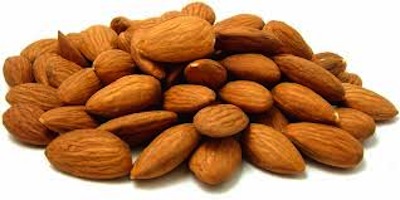
1oz/28g (20 to 25) nuts — 163 calories.
Contains: Fibre, calcium, riboflavin (B2) — the B vitamin that’s good for the skin — and vitamin E.
Treats: Protein, iron, magnesium, potassium (vital for a healthy nervous system), zinc (good for immune function), the vitamin niacin (which helps keep good skin) and copper.
Packed with calcium, almonds are brilliant for strong, healthy bones and teeth.
They are the best source of protein of all the proper nuts, have the most fibre and are highest in vitamin E — the nutrient that’s good for the skin, eyes and immune system.
Almonds are relatively high in calories — second only to macadamias — but are recommended to help people diet.
A recent study in the International Journal of Obesity showed that people who regularly ate almonds shed more pounds than those who didn’t.
The downside is they can be tricky to digest. Soaking them overnight in water or milk helps.
BRAZIL NUTS
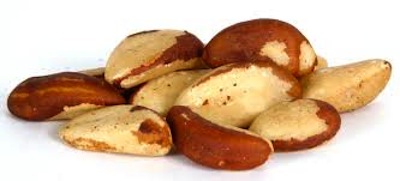
1oz/28g (6 to 8 nuts) — 186 calories.
Contains: Selenium (a mineral vital to fighting disease and healing wounds) and magnesium.
Treats: Protein, fibre, calcium, potassium, zinc, vitamin E.
Higher in calories than many other nuts, making them a good source of instant energy for athletes.
One nut contains your total recommended value of selenium, which is also thought to boost male fertility and may help prevent prostate, breast and bone cancers.
Brazil nuts may also help people with thyroid disease. But you don’t want too many. Extremely high doses lead to the loss of hair and nails, so a limit of three or four Brazil nuts a day is sensible.
CASHEWS
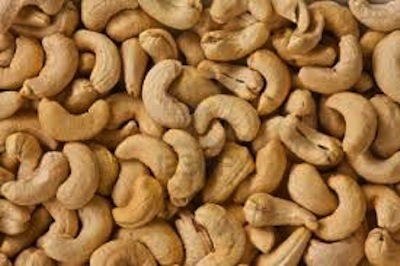
1oz/28g (16 to 18 nuts) — 163 calories.
Treats: Iron and zinc.
Good for: Protein, magnesium, potassium, vitamin B6, folate (a natural food form of the supplement folic acid, which is particularly important for women of child-bearing age), vitamin E, omega 3.
Cashews are particularly rich in iron and zinc. While zinc helps the immune system, iron helps the blood transport oxygen around the body.
They have a lower fat content than most nuts — and most of that fat is oleic acid, the heart-healthy substance found in olive oil.
A handful of cashews contains almost a quarter of the recommended daily intake of magnesium which also helps turn the food we eat into energy and is good for the bones. The nutrients contained in them may also help with the formation of collagen in the skin.
HAZELNUTS
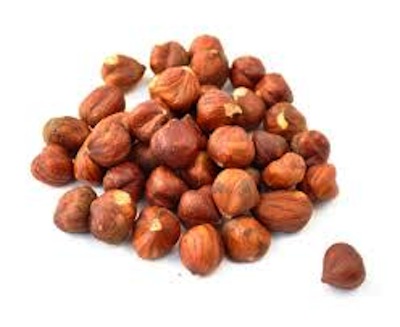
1oz/28g (20 nuts) — 178 calories.
Contains: Flavour and all-round health.
Treats: Protein, fibre, calcium, iron, magnesium, potassium, zinc, thiamin, vitamin B6, folate and vitamin E.
Not only one of the tastiest nuts, they are one of the healthiest.
High in mono-unsaturated fats, they can help protect your heart and improve your blood health.
They are also rich in vitamin E, which boosts skin health, and oleic acid — the fatty acid which can also help reduce blood pressure and may even help prevent dementia.
A serving of one ounce contains nearly a tenth of the recommended dietary intake of fibre, a good dose of protein and 17 per cent of the recommended intake of folate — making them a good choice for expectant mums.
MACADAMIA

1oz/28g (10 to 12 nuts) — 204 calories.
Contains: Thiamin (vitamin B10).
Treats: Fibre, iron, niacin, omega 3, calcium and potassium.
By weight, macadamias are one of most fattening of all the nuts.
But much of those calories are in the form of mono-unsaturated fats which can help reduce bad cholesterol levels and lower the risk of heart disease and stroke when eaten in moderation.
The nuts — which originally grew in Australia, but which are now produced around the world — are a superb source of omega 3 fatty acids which protect the heart.
However, they can be rich. Some digestive systems will struggle with more than nine or ten at a time.
PEANUTS
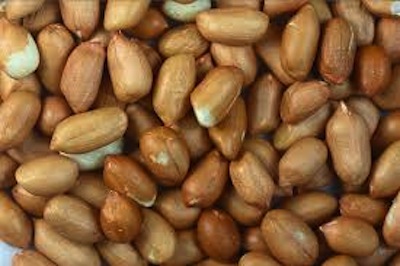
1oz/28g (28 nuts) — 166 calories.
Contains: Protein, niacin, folate.
Treats: Fibre, iron, potassium, zinc, riboflavin (vitamin B2), vitamin E, niacin (vitamin B3).
It may be the most popular nut, but the peanut is technically not a nut at all — it is a legume like a pea, bean and lentil and grows in small bushes a foot above the ground.
Peanuts are fantastically good for you, as long as you don’t suffer an allergy.
They have the same levels of cancer-busting antioxidants as those found in strawberries.
They are high in the ‘good’ mono-unsaturated fat and are an excellent source of protein.
Healthiest are unsalted.
PECANS

1oz/28g (20 halves) — 201 calories.
Contains: Sterols which help lower cholesterol.
Treats: Fibre, zinc, Vitamin E.
Pecans are one of the most heart-friendly nuts, high in sterols that can reduce cholesterol.
Sterols are the natural ingredients added to cholesterol-lowering margarine.
A study in the Journal of Nutrition found that pecans can reduce ‘bad’ cholesterol levels by up to 33 per cent.
They are a good source of vitamin E, oleic acid — which is also found in avocados — and are rich in vitamin B3, a nutrient which helps us get energy from food.
PISTACHIOS
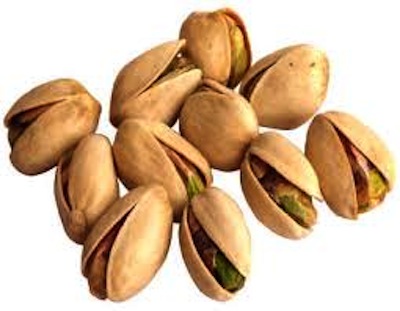
1oz/28g (50 nuts) — 160 calories.
Contains: Potassium and vitamin B6.
Treats: Protein, fibre, calcium, iron, thiamin (vitamin B1) and vitamin E.
The least fattening of all the nuts, a single pistachio has just four calories.
Pistachios have three times the vitamin B6 — the nutrient that helps convert energy to food and form haemoglobin —– than any other nut.
One serving has fifth of the daily recommended amount and three grams of fibre, more than many fruits.
The high Vitamin B6 levels can help women keep their hormones balanced.
It’s not just women who benefit, though. In 2011 a study suggested that daily pistachios could even help men suffering from erectile dysfunction.
A serving has as much potassium as half a large banana. Pistachios are also rich in the antioxidant gamma-tocopherol, thought to protect against cancer and heart disease.
WALNUTS
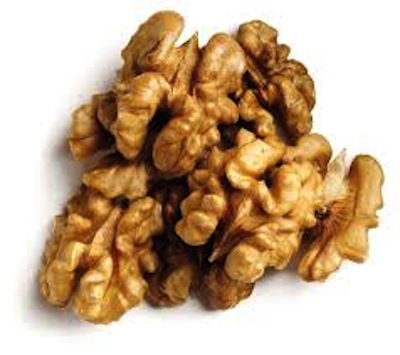
1oz/28g (14 halves) — 185 calories.
Contains: Antioxidants.
Treats: fibre, calcium, iron, zinc, vitamin B6, folate, omega 3 fatty acids.
Packed with omega 3 fatty acids, which can also protect against heart disease and strokes.
And they have more antioxidants than almost any other nut, making them useful in the battle against cancer. They are also good for brain health.
Studies have shown walnuts can reduce bad cholesterol levels.
That is because around three quarters of their fat is mono-unsaturated — the healthier form of fat.

